It was the American Historian, Timothy Snyder in his book On Tyranny: Twenty Lessons from the Twentieth Century, who warned that ‘anticipatory obedience’, which means ‘adapting instinctively, without reflecting, to a new situation… is a political tragedy.’
This is a warning that can easily be dismissed mainly because it is about accepting or rejecting actions and decisions of political leaders. It simply suggests that there are ways in which accepting actions and decisions of political leaders can be tragic. This could imply promoting some degree of rebellion with the potential consequences of citizens not being able to influence actions and decisions of leaders, which will negate the main essence of democracy.
Join our WhatsApp Channel
Democracy being a system of government, which produces leaders through elections presupposes that elected representatives would enjoy the support of citizens. On the other hand, on account of being supported, it is also expected that citizens would influence actions and decisions of leaders. This is believed to form the basis of trust between leaders and citizens.
However, when all these are taken for granted, the tendency for political leaders to require citizens to be blindly loyal create the false belief that all actions and decisions of leaders are right and any disagreement or criticism by any person unacceptable, if not criminal. Without any attempt to review the presentations of Snyder, situations which makes political leaders to expect absolute loyalty (anticipatory obedience) to every action and decision of leaders produces the political tragedy of citizens distrusting representatives and governments they elected. This is not a very difficult proposition to acknowledge.
In Nigeria, since 1999, distrust between citizens and elected representatives and governments has been a major challenge, which in many respects makes politics predictably very difficult to engage. Politics is reduced predominantly to a vocation for people aspiring to contest elective offices. #
Responsibility of citizens is correspondingly limited to endorsing the aspirations of political leaders for elective position. The thin line has always been the challenge of reconciling aspiration to hold elective offices with the capacity to effectively meet the needs of electorate. Inability of political leaders to be tolerant to disagreements and criticisms reduces democracy to a vicious cycle of controversies and conflicts, often pitching leaders against citizens and citizens against leaders.
Why should political leaders expect citizens to be blindly loyal, but citizens should not expect leaders to be tolerant to criticisms and disagreements? It defeats the whole essence of democracy if at all times citizens must support every action and decision of leaders.
Why did we as a nation fought against military regimes, if election would only produce leaders who takes offence at any position which question their actions or decisions? This reality perhaps confirms David Runciman’s sensational argument, in the book, How Democracy Ends when he asserts that ‘CONTEMPORARY REPRESENTATIVE democracy is tired, vindictive, paranoid, self-deceiving, clumsy and frequently ineffectual. Much of the time it is living on past glories.
This sorry state of affairs reflects what we become. But current democracy is not who we are. It is just a system of government, which we built and we can replace. So why don’t we replace it with something better.
Democracy is certainly tired when the challenge of reconciling aspiration of leaders to hold elective offices with the capacity to effectively meet the needs of electorate remained elusive. It will be ‘vindictive, paranoid, self-deceiving’ when political leaders are intolerant to disagreements and criticisms, but citizens should be blindly loyal. Both the intolerant leader and the blindly loyal citizen will be vulnerable to making stupid blunders, which could mean dashed expectations on both sides.
The big loser would most likely be the leaders because the expectation of winning votes of citizens to return to office may never materialise, except if elections are manipulated. This is invariably the result of ‘living on past glories’ with the false consciousness that leaders can win elections, fairly or unfairly, without meeting the expectations of citizens.
As a nation, this has been a challenge. It was precisely this very reality that confer strong legitimacy to the vision to form the APC with the merger negotiation of the old legacy parties – Action Congress of Nigeria (ACN), All Nigeria Peoples Party (ANPP), Congress for Progressives Change (CPC) and a faction of the All Progressives Grand Alliance (APGA). The emergence of APC in 2013 gave hope to Nigerians that beyond defeating the PDP in the 2015 general elections, elected leaders produced by the APC would initiate processes of political change.
Expectedly, politics of impunity, disrespect for rules, which was what the PDP represent would become history. Recall that for sixteen years under the PDP, between 1999 and 2015, the PDP, as a party, was not allowed to develop the capacity to manage internal negotiations. Whenever organs of the party meet, party leaders only take instructions from elected representatives. Positions of elected leaders, especially the President become the decisions of the party. Any leader who disagrees with especially the President is muscled out of office.
Without recalling all the incidences whereby leaders of the PDP were forced out of office, especially during the tenure of former President Olusegun Obasanjo (1999 – 2007), it suffices to point out that Nigerian democracy was cheapened to the level of autocracy. Elections both within parties and at national level were sham. Results of so-called elections were produced even before votes were casted. Conscious that elections would always be manipulated to favour elected leaders, acts of impunity and refusal to respect and consider demands being made by citizens became rampant. These were the issues that APC needed to change.
Certainly, in the buildup to the 2015 elections, there was relatively fair contest in APC, which strengthen the confidence of Nigerians on APC’s commitment to change Nigerian politics. Virtually, all candidates of the party for 2015 elections won the party primary.#
For the first time, since 1999, problems of internal litigation because of imposition of candidates were significantly reduced. But once the 2015 election was won, systematically, many elected representatives began to drift back to the old PDP ways. Consequently, by the time of the 2019 elections, mismanagement of internal contest in APC was rampant. Unlike in the case of the PDP whereby overbearing behaviour of the President was the source of the problem, in our case in APC, it was imperial conduct of national leaders of the party, especially the National Chairman that was the challenge.
Again, unlike the case of the PDP, APC was extremely lucky to have a leader in President Muhammadu Buhari who doesn’t meddle in the affairs of the party. Sadly, this became the license for party leaders to abuse the trust of both the President and majority of party leaders and members. Overtime, this has damaged the profile of the APC to the point whereby, based on the conduct of leaders and some elected representatives of the party, it is difficult to associate the APC with its founding vision of change. Problems of intolerance to disagreements and criticisms, with some leaders expecting members to be blindly loyal is becoming a common attribute.
Views of party leaders become dominantly decisions of party organs. Even when consultations take place and there is a clear decision, so long as the decisions are not what some few party leaders want, those decisions will not be implemented. It doesn’t matter whether President Buhari was part of the consultations, and in agreement with the decision. Propensity to disrespect decisions and party leaders, including the President, is very high today in APC.
This reality is very disturbing. APC today, wasn’t the APC of the period 2013 to 2015. Perhaps outside President Buhari, there are very few elected leaders in APC who are still committed to the founding vision of the party to provide leadership to change Nigerian politics. Given where the nation is coming from under PDP, changing Nigerian politics would require departure from requiring citizens to be blindly loyal to elected leaders. It should require that citizens and party members are free to disagree and criticise elected leaders. In other words, politics of change should produce elected leaders who should be highly tolerant and where possible even accommodate disagreements and criticisms as part the process of decision making.
This may sound like wishful thoughts. The truth however is that our dear APC is being held captive by some few leaders whose interest is only about imposing themselves as candidates for elections. So long as that is the case, it means what we have as APC today wasn’t the party negotiated and produced out of our legacy parties.]
Rather than the envisioned party, which allows for internal debates and disagreements among party leaders and members, based on which there could be negotiations and agreements, APC today has been diminished to only an election platform, which is what the founding leaders and members wanted to change. The commitment to change the profile of political parties beyond being election platforms was precisely part of why Nigerians supported the APC in 2015.
Every founding leader and member of the APC must rise to challenge of arresting the drift in the party. Few individual leaders of the party must not be allowed to continue to impose themselves and destroy a party with potentials to provide the needed democratic platform for negotiated resolutions of all the problems of Nigeria. As it is today, APC is the only party where contestation is taking place. Again, thanks to President Buhari who is providing unbiased leadership to the party, it is possible for ordinary members to express themselves, including disagreeing with decisions of leaders of the party. This unique leadership of President Buhari has helped a lot to sustain the hope of both party leaders, members and Nigerians desirous of political change.
Beyond the unbiased leadership of President Buhari, there is the need for all party leaders and members committed to the politics of change to ensure the emergence of party leaders at the February 26, 2022 National Convention who must be tolerant to criticisms and disagreements and should not expect members to be blindly loyal. Above all, if APC is to return to its founding vision of driving the process of change in Nigeria, it must produce leaders who would be able to compel elected representatives produced by the party to be accountable to Nigerians. As argued in previous interventions before now, some of the minimum guiding principles to determine qualification of potential party leaders especially the National Chairman include:
Potential candidates must have good relations will party leaders at national level, especially President Buhari.
Candidate must also have good relations with all party leaders in his/her state, including the having good relations with Governor, where there is an APC government.
It should be a strong advantage when the aspiring person has played any role during the merger negotiation that produced APC and has been consistent in the party since 2013. This means such a parson would have the needed institutional memory to recognise and respect sacrifices made by party leaders and members to make the merger that produce the APC successful.
It should be a strong disadvantage when any aspiring candidate has records of defection from the party or any of the legacy parties that merged to form the APC.
Finally, public service experience will not only be an advantage but a measure of determining the democratic credentials of the candidate. Any candidate with public service experience at whatever level without incontestable records of achievements, such a person cannot inspire any party member and by extension Nigerians into believing that his/her leadership can bring any good electoral fortune for the party.
After the February 26, 2022 National Convention, if APC is to return to its founding vision of being a party committed to changing Nigerian politics, the new APC leaders must ensure that structures of the party meet as and when due as provided by the party’s constitution. Once decisions are taken at meetings, the new party leaders must ensure expeditious implementation. Implementation of decisions must not be determined based on the convenience of leaders, which sadly is becoming the reputation of the APC Caretaker and Extraordinary Convention Planning Committee (CECPC). The chapter of endless postponement of decisions must terminate with the tenure of the current CECPC.
APC leaders must wake up to the responsibility of returning the party to the era when party leaders are tolerant to criticisms and disagreements. Both party leaders and elected representatives must not expect ‘anticipatory obedience’ from both party members and Nigerians. Not expecting ‘anticipatory obedience’ should be part of what will endear the party and its candidates to Nigerians based on which winning elections can be guaranteed just as it was the case in 2015 and 2019. These are minimum requirements that should instill some level of humility in both party leaders and elected representatives. Anything short of this will endanger the APC and weaken the commitment of the party and its leaders to drive the politics of change in Nigeria.
Finally, it is important to once more appeal to APC leaders to ensure that the February 26, 2022 National Convention is not just about electing National Working Committee (NWC) members. There must be some reflections about the challenges facing the country, with priority focus on problems of insecurity, rebuilding public education and health through mosilisation of massive financial investment in these sectors. Conclusions and recommendations from the Convention should guide the review process of the party’s manifesto and bring out some of the campaign agenda of the APC for the 2023 campaigns. A major indicator for this would also include a review of the APC manifesto at the Convention.
The campaign to return APC to its founding vision must have strong expression and resonance at the February 26, 2022 National Convention. The current drift, which is systematically destroying the APC must be arrested based on all the outcomes of the National Convention. Any leader working to undermine the National Convention should be sanctioned. Party members need to appeal to party leaders at all levels to return APC to its founding vision, which encourages internal debates and negotiations based on which agreements are reached and respected. APC, being a party of change, encourages members to be critical.#
A party of change must promote internal debates. Leaders of the party should not expect ‘anticipatory obedience’ from members and Nigerians. That is the APC founded on the sacrifices of leaders and members of our old legacy parties, it is the APC that the February 26, 2022 National Convention must return to!!!
Salihu Moh. Lukman lives in Abuja.
Email: smlukmam@gmail.com

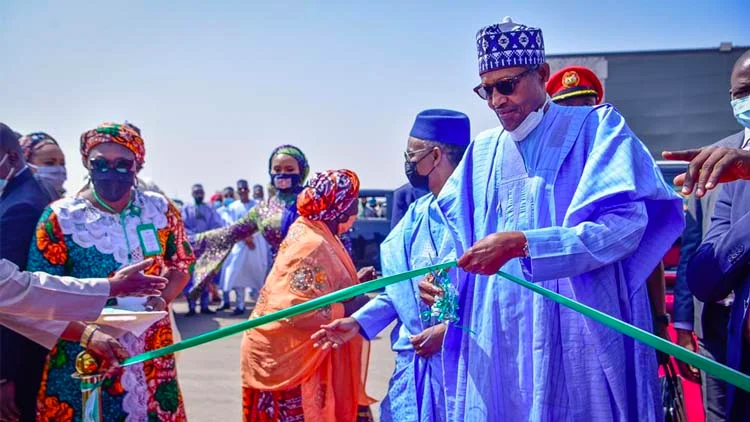


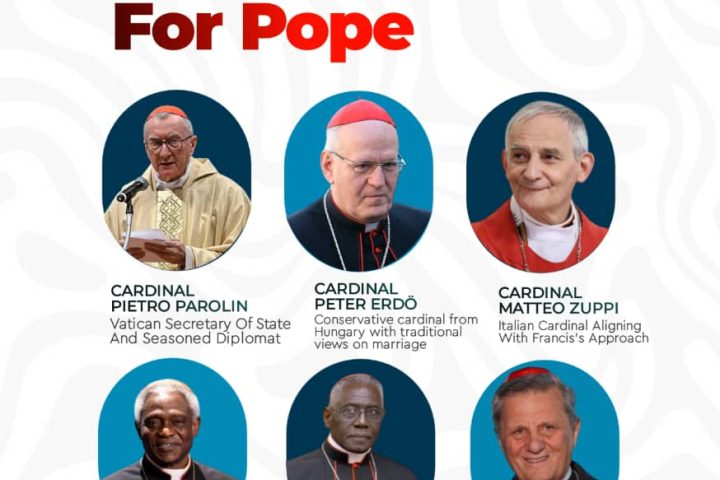
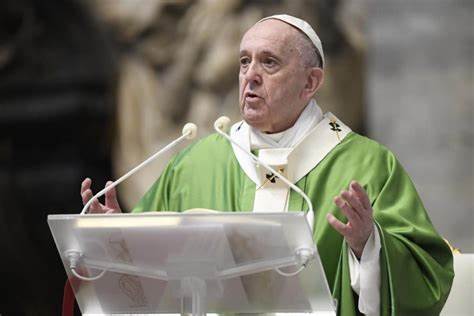









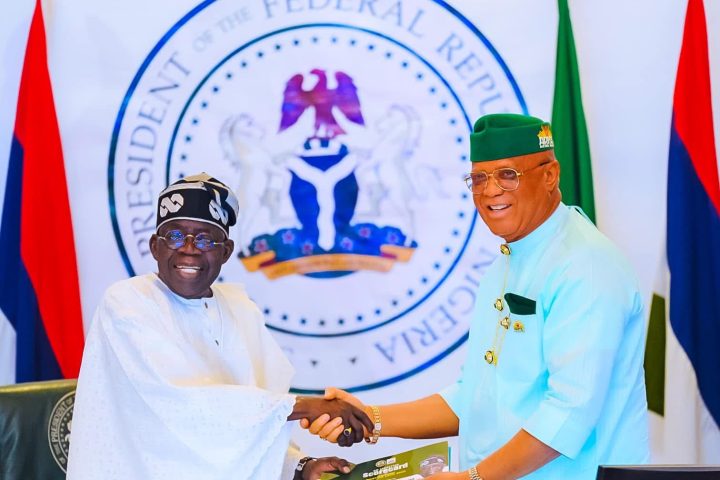

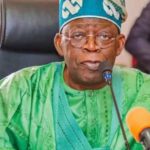
Follow Us